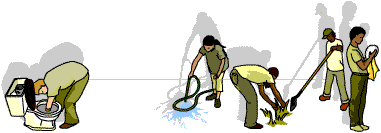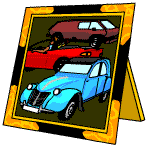Being Practical
Created | Updated Jan 13, 2013
The first question is always, 'How?'
Being Practical

Back when I was a teenager, it occurred to my mother that it might be time for me to learn to operate a motor vehicle. Why I was 38 before I obtained a driving licence is a long and weary saga that starts with the following.
My mom: 'Go and teach the kid to drive.'
My dad, obediently: 'Okay.' (Grabs car keys and gets me away from piano.)
The two of us sit in the car. My father launches into a lengthy explanation of the functioning of the internal combustion engine, the physical principles involved, the various moving parts, etc, etc. I listen intently, but after about fifteen minutes, my mind starts to wander back in the direction of Beethoven. . . . eventually, he asks, 'Do you have any questions?'
Me: 'Er, how do you start the thing?'
My dad was one of the finest men who ever drew breath. But he was an engineer, not a teacher.
Skip ahead, many decades, far too many. . . an editor said, 'I need some Activities for the online course. You write them, we pay some dollars for each.'
Me: 'Great, I like dollars. What does the Activity look like?'
Editor launches into a lengthy explanation of the educational theory behind each type of Activity, the Lesson Objectives that need to be achieved, the Bloom levels involved (don't ask, I mean it), etc, etc. I listen patiently for about twenty minutes, resisting the urge to think about Beethoven. . . eventually, he asks, 'Do you have any questions?'
Me: 'Yes. How many webpages for each Activity? What's the word limit on each page? Which pages require illustrations? What page does the printable go on? Can you send me the boilerplate for the directions? And. . . '
You see, I had learned a few things since I was a teenager. One of them was: if other people make better doers than explainers, you've got to know what questions to ask.
Another was: be practical. All the theory in the world isn't going to start the car. Or get the Activity written. It takes kinetic energy to make it happen. And you've got to know where the switch is before you can turn it.
That's not to say that we shouldn't be abstract. Abstract thinking is one of mankind's greatest gifts. Analyse, criticise, plan, dream. Argue to your hearts' content.
But then, please: remember to ask the operative question.
'How do I turn this thing on?'

The Fact and Fiction by Dmitri Gheorgheni Archive
